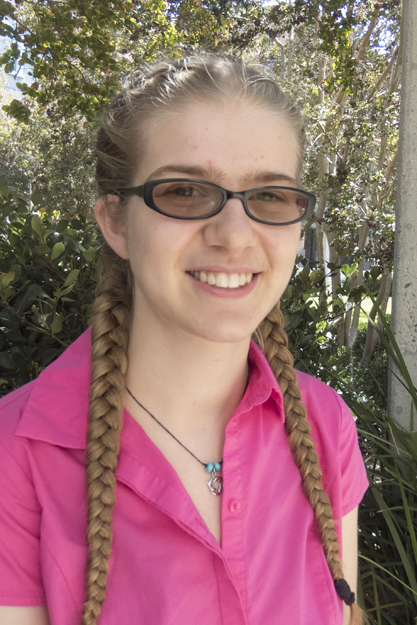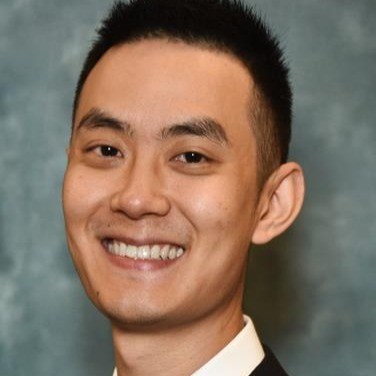Current Fellows

Kristyn A. Carter, MSc, PhD
Rachael Clark Lab
After spaceflight, previously healthy astronauts develop decreased insulin secretion and glucose intolerance. These subtle changes are classified as diabetogenic and create metabolic abnormalities, like those observed in early Type I and Type II diabetes individuals. Dr. Carter’s project aims to elucidate how Stress-associated glucocorticoid production and microgravity have separate and distinct effects on human skin that can be modeled using in vitro studies the interrogate the impact of these stimuli on skin biopsies and cells exposed to glucocorticoids and/or microgravity.

Jessica Leigh Flesher, PhD
David Fisher Lab
Dr. Flesher’s research project focuses on characterizing the role of G9a inhibition in the context of melanoma immunotherapy, including the impact on the immune response, as well as identify and characterize a synthetic lethal relationship with ARID1A and ARID2 mutations with G9a inhibition.

Andrew King, MD, PhD
David E. Fisher Lab
Melanocytes play a critical role in lifelong protection against UV damage in skin. As a part of this task, melanocytes must rapidly synthesize melanosomes and components of the melanin synthesis pathway, which may be a major risk of protein misfolding. MITF is the master regulator in melanocytes that coordinates melanin synthesis as well as other key protective cellular functions, such as autophagy and apoptosis. Dr. King is interested in investigating the relationship between specific MITF, DDI2, and protein quality control resulting in MHC-I and II accumulation; understanding the immunologic consequences of MHC-I and II accumulation; and assessing the feasibility of exploiting the DDI2 axis in pre-clinical models of skin cancers.

Mohsen Maleh Mir, PhD
Thorsten Mempel Lab
Immunotherapies, particularly with immune checkpoint inhibitors (ICIs) have revolutionized the treatment of cancer, showing promising therapeutic benefits in several solid tumor types and producing durable clinical responses. While more and more immunotherapies enter clinical trials each year, to date only a limited number of patients show beneficial effects from these therapies. The reasons for this are yet to be fully understood, however, recent studies in the field highlight that one of the key predictors of responsiveness to immunotherapy is the phenotype and location of T cells found within the tumor Dr. Mir is interested in identifying extrinsic and intrinsic regulators of immune cell infiltration to the tumor microenvironment in order to therapeutically regulate CD8+ T cell immunity. Specifically, he is focusing on TCF1+ CD8+ T cells trafficking through our bodies and how they interact with antigen presenting dendritic cells (DCs) in the tumor microenvironment to receive the diverse signals that regulate their survival, proliferation, and activation of appropriate effector functions.
Past Fellows

Jennifer A. Lo, MD, PhD
David Fisher Lab
Dr. Lo’s research project focuses on characterizing tissue organization in skin cancers and pre-cancers using single cell spatially resolved transcriptomics. Her project includes three aims: 1) optimize spatial transcriptomics methods for application to skin tissue, 2) apply these methods to mapping cell types and states in normal skin, and 3) characterize the interactions between immune cells and atypical, pre-malignant, or malignant cells in patients with skin cancers and pre-cancers.
She is the recipient of the 2024 Broad Ignite Award.

Tomonori Oka, MD, PhD
Shawn Demehri Lab
As the second most common malignancy, cutaneous SCC is associated with substantial morbidity, mortality, and economic burden, with over $1 billion in treatment costs annually in the United States. Actinic Keratoses (Aks) are a precursor to SCC. Dr. Oka’s project aimed to determine the mechanism by which calcipotriol plus 5-fluorouracil (5-FU) immunotherapy eliminates precancerous skin lesions, actinic keratoses (AKs), and prevents squamous cell carcinoma (SCC).” Dr. Oka is now the Clinical Research Director at Sanofi in Cambridge, MA.”

Jeffrey Scott Smith
Andrew Kruse Lab
Dr. Smith’s research project focuses on leveraging state-of-the-art biochemical and biophysical techniques with traditional molecular pharmacology approaches to probe if biased agonists differentially form Gi:β-arrestin complexes. And, to also define the minimal cellular components necessary to form Gi:β-arrestin complexes. He is the recipient of the 2023 Dermatology Foundation Investigator Research Fellowship.
He is the recipient of the 2024 Dermatology Foundation Career Development Award but had to decline to accept his own K08 entitled “Biochemical Determinants of Chemokine Receptor Signaling”.

Erin Marie Theisen
Michael Brenner Lab
Dr. Theisen’s research project focuses on defining the immune cell types present and their key interaction to define novel treatment targets in psoriasis and psoriatic arthritis, and characterize the role of Granzyme-K+ DD8+ T-cells in psoriasis and psoriatic arthritis.
She is the recipient of the 2024 Dermatology Foundation Career Development Award.

William “Cris” Crisler, PhD
Rachael Clark Lab
Dr. Crisler’s project centers on understanding the unique mechanisms of T cell mediated rejection in vascular composite allografts (VCA) like face and limb transplants. The goal is to find novel therapies for these vulnerable patients who suffer recurrent episodes of rejection. He is the recipient of the 2023 Dermatology Foundation Career Development Award.

